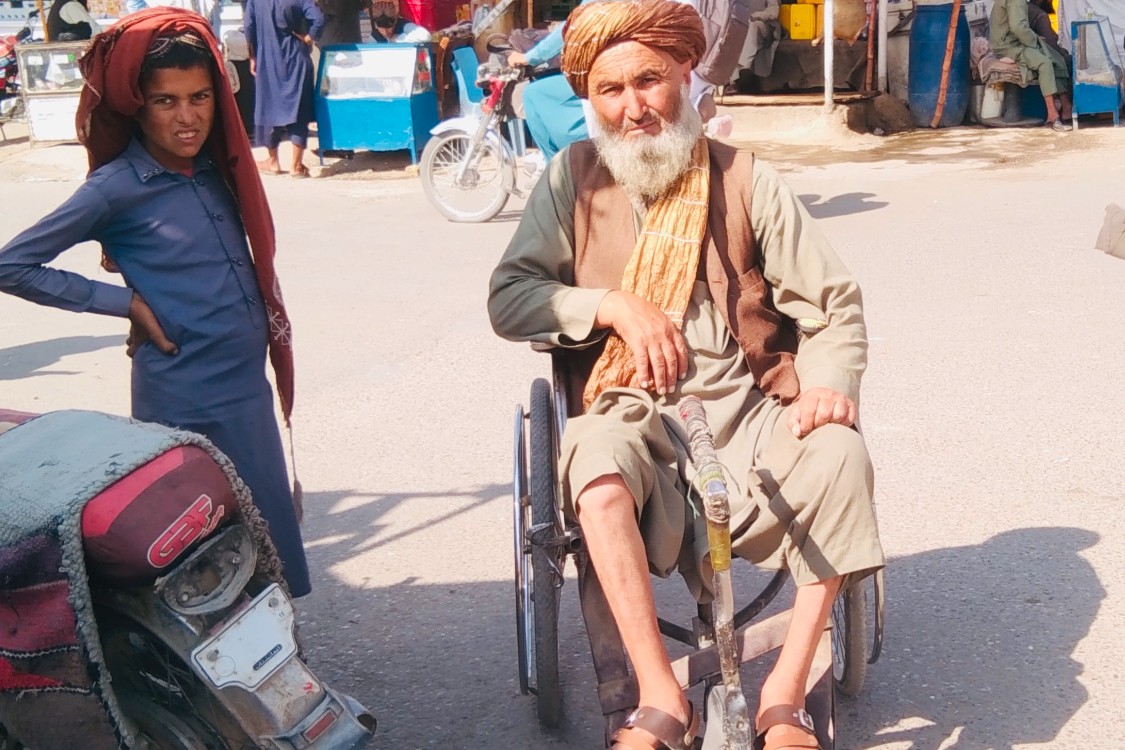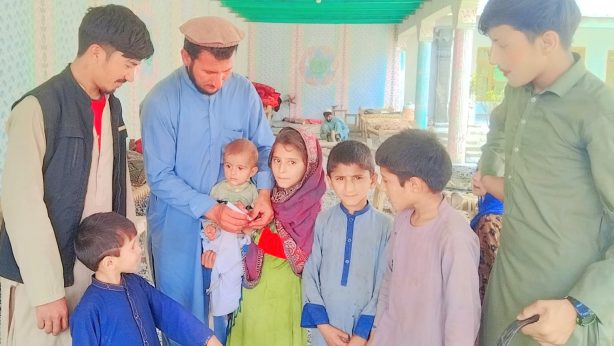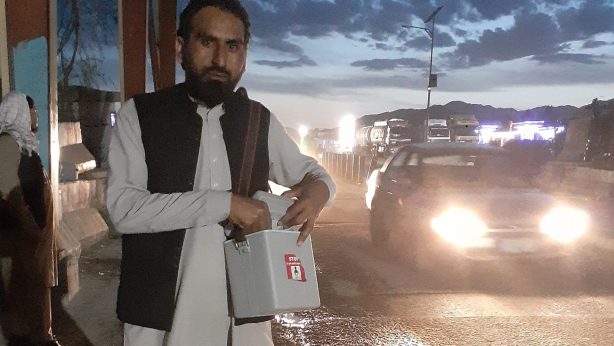A Living Example of Polio’s Irreversible Effects: Fakhruddin’s Story

Helmand, Afghanistan – Amid the daily hustle and bustle of the market in Helmand’s Grishk district, a scene catches the attention of passersby.
Seated in a wheelchair, 45-year-old Fakhruddin crosses the street with the help of his 10-year-old son. This moment tells the story of his life’s struggles—a heart-wrenching tale that began in his childhood when polio permanently paralyzed both of his legs.
Fakhruddin recalls that his difficult days started at the age of seven, and his disability has brought numerous challenges to his life.
“Both my legs are paralyzed. I can only move with the help of a wheelchair. Without it, I would be confined in one place,” he said.
He recalls the painful moments when he was taken to the hospital due to severe fever and abdominal pain. It was there that doctors informed him he had contracted polio—a disease with no cure.
He said that at that time, there were no polio vaccines, and public awareness about the disease was also low.
He states with great regret, “If the vaccine had been available back then and I had been vaccinated, my life would not have been this difficult today.”
Fakhruddin also faces severe economic challenges and despite receiving a modest disability pension from the government, he struggles to meet his family’s needs.
“I didn’t pursue an education because my family could not provide the necessary support due to my disability,” he said. “Now, when I look at myself, all my focus is on the health and education of my children.”
He has high hopes for his four children and adds, “I want my children to stay healthy and get an education so they can build a better future for themselves.”
In addition to his personal struggles, Fakhruddin also contributes to raising awareness about polio as a victim of the disease. He encourages others to vaccinate their children against polio to prevent from falling victim to this dangerous disease.
Abdul Hamid, one of Fakhruddin’s relatives, remarked, “Fakhruddin is a living example of the devastating effects of polio. During his childhood, the polio vaccine wasn’t accessible, and as a result, he contracted the disease and became paralyzed. This has not only caused him immense challenges but has also placed economic, social, and other burdens on his family.”
He urges all families to prioritize their children’s health and ensure they receive regular vaccinations against polio and other dangerous diseases to keep them safe and healthy.
Dr. Abdul Latif, a pediatric specialist, also highlights the importance of polio vaccination. “Polio has no cure, but it is a preventable disease—provided children are vaccinated consistently,” he said.
Fakhruddin’s life serves as a living lesson for those who are still indifferent about the polio vaccine. His story carries a vital message: polio vaccination is essential for protecting the health and future of children.
Saeed Zabuli, Polio Free Afghanistan


